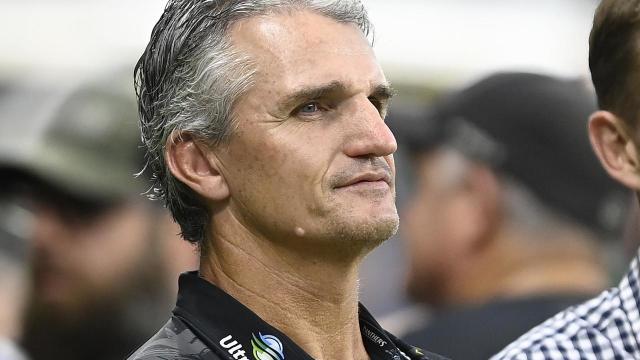Cleary wants to see clubs compensated for their efforts in developing junior talent that is then poached.

Ivan Cleary has called for clubs to be compensated by the NRL when rival teams poach their junior talent after his son, Jett Cleary, signed a deal with the Warriors. Last month the younger brother of Penrith Panthers star Nathan signed a three-year deal to join the New Zealand club in 2025.
Panthers fans had long dreamed of a Nathan and Jett Cleary combination in the halves but like many of the Penrith academy products, Jett was snapped up by a rival as a result of the club having several talented youngsters coming up in the Panthers’ Under-19 SG Ball side. And Cleary is far from the only talented player poached from Penrith in recent years.
From next year, 14 players who have tasted premiership glory at Penrith will have moved on in the past three seasons, with the club unable to match the wages offered to them by other clubs. Rival teams have also targeted their league-leading junior nursery, with the likes of Dolphins star Isaiya Katoa, Mason Teague, Luke Hanson, Keagan Russell-Smith and Delahia Wigmore all part of Penrith’s 2022 SG Ball winning side, who now have contracts at rival NRL clubs.
And the Panthers coach believes it isn’t fair that as a club they are developing these players only for them to be poached by other clubs and he wants to see a compensation system set up. “I think we should get dispensation, probably more in a development sense,” Cleary said.

Privately, Penrith’s management is said to be in favour of a model that financially rewards NRL clubs that invest in regional areas- as the Panthers have done so effectively in western NSW. Under the system, clubs would receive varying grants to match the level of development they undertook regionally.
Cleary didn’t suggest the method of compensation he believes is appropriate when quizzed this week but believes salary cap compensation is just one of many options the NRL has. “We develop a lot of players here that end up elsewhere, so I feel like we should get looked after more by the NRL in that space, apart from the salary cap and how it all works, it’s hard to argue with,” he said.
“But I do think we should be compensated in some way for the amount of players we’ve developed and the status they’ve become throughout the league.”

